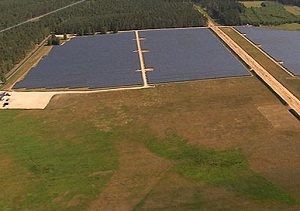German ministers throw ice on hot solar market
 Germany’s feed-in tariff (FiT) policy has made it the hottest solar market in the world, with more than 25 gigawatts of solar already installed. But its success may now be its worst enemy as two of the country’s ministers plan to introduce legislation that would cut the tariff rate by up to 30 percent, and in some instances it would entirely eliminate it.
Germany’s feed-in tariff (FiT) policy has made it the hottest solar market in the world, with more than 25 gigawatts of solar already installed. But its success may now be its worst enemy as two of the country’s ministers plan to introduce legislation that would cut the tariff rate by up to 30 percent, and in some instances it would entirely eliminate it.
German Economy Minister Philipp Roesler and Environment Minister Norbert Roettgen last week said they will introduce legislation that reduces the country’s FiT, the amount that utilities must pay for electricity generated by solar arrays, to nothing for solar installations over 10 megawatts.
Under the proposal, projects between 10 kilowatts and 1 megawatt would see a decrease of 25 to 29 percent, a reduction of up to 16.5 euro cents per kilowatt hour (kWh). Systems between 1 megawatt and 10 megawatts would see a 26 percent reduction to 13.5 euro cents per kWh and systems up to 10 kilowatts would see a 20.2 percent reduction to 19.5 euro cents per kWh, according to Bloomberg BNA.
The ministers decided to introduce the legislation in an effort to further cool down the German solar market, which despite steep FiT reductions last year, remained red-hot.
Last year the country installed roughly 7.5 gigawatts of solar. That’s well over the 3 gigawatts that the country expected. That’s partly because of the continued steep price drops in PV. It’s not like this is going to happen later this year or next year. The policy change could come into effect by March 9 if the country’s Parliament approves it.
“The reductions which were announced last week were a shock for us,” said Stefan Müller, chief operating officer with Enerparc, a German-based project developer with more than 400 megawatts of projects, including one of the world’s largest facilities in operation. Müller was talking at the recent Inverter and PV System Technology Forum in San Francisco.
Under the proposed reductions, companies like Enerparc would have to completely install solar for about $1.20 euros per watt, according to Müller. That would be down from between $1.60 to $1.70 per watt.
“And it is possible,” he said.
Müller attributed the potential policy change to utilities and lobbyists. At the new rate, the FiT will be lower than the average cost of electricity, which is up to 24 cents per kWh.



